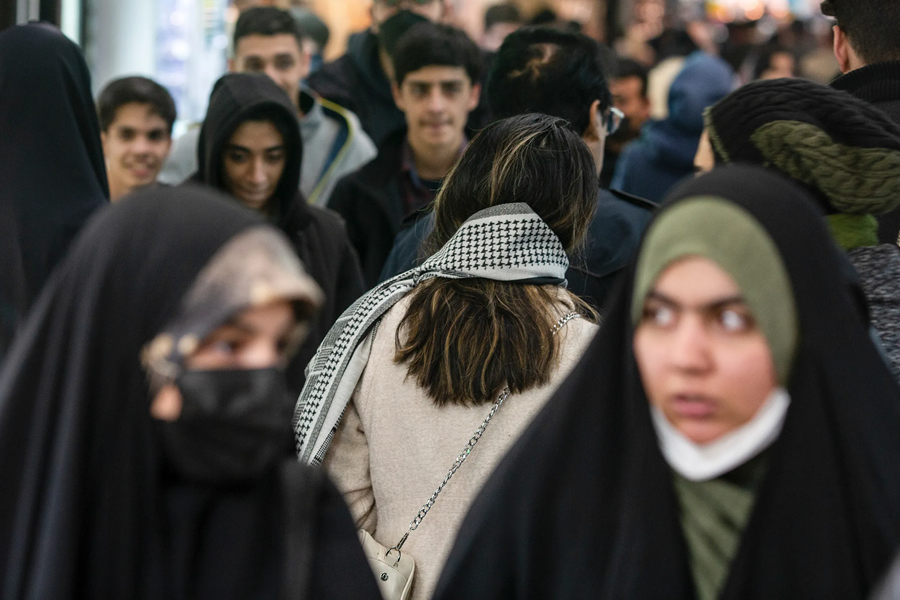The Iranian government has decided to suspend the promotion of a controversial bill that would have imposed draconian sanctions on women who refuse to wear the hijab. This decision comes at a critical moment for the country, as reformist president Masoud Pezeshkian seeks to improve relations with the West.
Hijab in Iran: The decision to suspend the bill
According to statements by Vice President Shahram Dabiri, responsible for parliamentary affairs, the bill that was approved by parliament in September 2023 will not be referred to the government as originally scheduled. The decision was made following discussions between senior executive, legislative and judicial bodies.
“At this moment, implementing the bill is not feasible,” Dabiri said in an interview with the pro-reform newspaper Ham Mihan, without providing further details about the reasons for the suspension.
Political implications for President Pezeshkian
The suspension of the bill represents a significant political victory for President Pezeshkian, who had expressed strong objections to its content. Had the bill been forwarded to the government, the president would have found himself in a difficult position, as according to the Iranian constitution he would have been obligated to approve it within five days.
Pezeshkian, who is trying to restart negotiations with the West regarding Iran’s nuclear program, had characterized the bill as problematic, highlighting the “many issues and ambiguities” it contained.
The legacy of Mahsa Amini and social changes
The debate over the bill fits into the broader context of social developments that followed the death of 22-year-old Mahsa Amini on September 16, 2022. The young woman died after being arrested by the morality police for allegedly not wearing her hijab properly.
Although Iranian authorities deny any responsibility, United Nations investigators concluded that Amini “suffered physical violence that led to her death.” The protests that followed cost the lives of more than 500 people, while over 22,000 individuals were arrested.
The draconian provisions of the bill
The 74-article bill provided for extremely strict sanctions that would affect not only women but also broader circles of society. The proposed penalties included:
• Fines of $800 for the first violation and $1,500 for the second
• Prison sentences up to 15 years for a third violation
• Seizure of 8% of net worth for celebrities
• Fines or closure for businesses serving women without hijab
• Travel bans for violators
Women’s resistance and social changes
Following Amini’s death, Iranian women have begun increasingly ignoring hijab laws, appearing in public with uncovered hair despite the risk of arrest. This silent rebellion has created new realities in Iranian society and has influenced the country’s political agenda.
The suspended bill would have allowed even foreign nationals, including the millions of Afghans living in Iran, to function as informants. Additionally, it would have provided police with access to private material from security cameras and footage recorded by security forces.
The suspension of the bill reflects internal political tensions in Iran and the reform movement’s attempt to influence government policy on one of the country’s most sensitive social issues.




